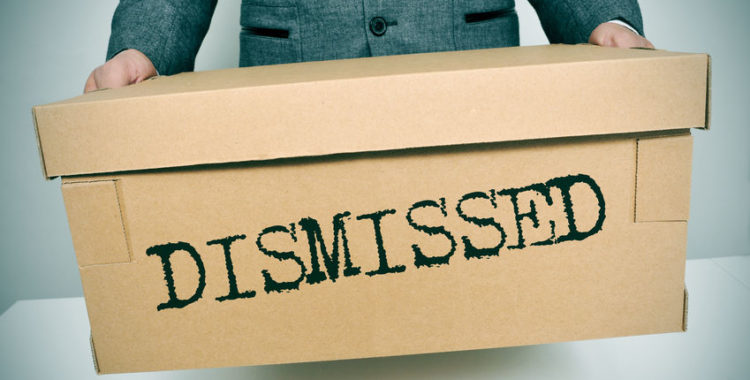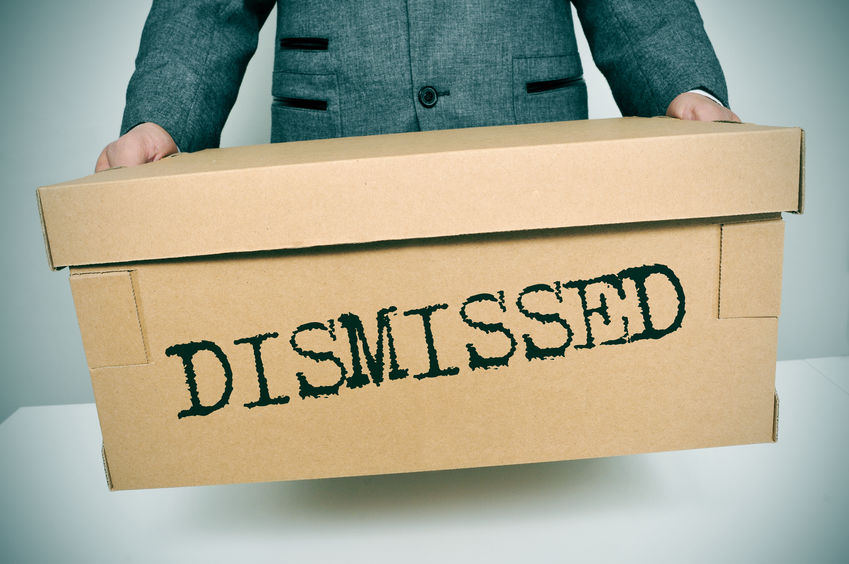 Picking up from where we left off last week (see Steps to Take), just before being terminated or at the time you are being fired, you may not always remember all the right questions to ask or actions to take. In the second part of this series, we provide additional things you can do to protect your rights if you are about to be fired or if you get terminated from your job:
Picking up from where we left off last week (see Steps to Take), just before being terminated or at the time you are being fired, you may not always remember all the right questions to ask or actions to take. In the second part of this series, we provide additional things you can do to protect your rights if you are about to be fired or if you get terminated from your job:
- GET LETTERS OF REFERENCE AND FIND OUT YOUR EMPLOYER’S REFERENCE POLICY. A common misconception is that the law prohibits your employer from providing your potential new employers with any information about you other than your dates of employment and position held. This is NOT the case. When a company follows up on your employment references, your past employer is generally allowed to share information, even negative information, regarding you with your potential employers. That is why it is so important to ask your supervisor or other colleagues who worked with you for positive letters of reference or at least a neutral reference letter. If you cannot get a positive letter of reference from the company, ask your employer what will be said to prospective employers when they call for your references. There are also services out there that will check your references for you so that you know what your employer will say or may be saying to potential employers.
- ASK FOR ALL AGREEMENTS YOU SIGNED THAT MAY STILL BE IN EFFECT EVEN AFTER YOUR TERMINATION. You may not remember all the documents and/or agreements you signed during your employment. It is important to ask your employer for copies of any agreements you signed, so you know your post-termination obligations. The most common types of agreements that follow you even after you are fired are agreements not to compete with the company, not to solicit clients or other employees, and to keep company information confidential. Unfortunately, being fired does not typically relieve you from these types of obligations to your employer, regardless of the reason for the termination. Once you obtain copies of these agreements, we urge you to consult with your legal counsel to review the agreements and answer any questions you may have about your rights and responsibilities, along with any potential defenses to the agreements you may have based on your specific circumstances.
- ASK ABOUT YOUR BENEFITS AND FINAL PAY OUTS. If you get benefits through your employer, such as health insurance and/or retirement benefits, be sure to ask when those benefits will end. Federal law provides that certain employers are required to give you written notice about your health insurance benefits and how to extend them at your expense or how to convert your retirement benefits to your own account. If federal law does not apply to your employer, you may still have rights under Florida law to continue your health insurance, etcetera. You should also find out when you will receive your final paycheck and/or any payouts for accrued vacation, PTO or any unpaid expenses. While employees are not automatically entitled to be paid out their vacation or PTO, employers may have a policy of paying out these additional benefits. You should also find out if your employer has a severance plan to see if you are entitled to any severance or other separation benefits.
- CONSULT WITH COUNSEL AS SOON AS POSSIBLE. It always a good idea to consult with an employment attorney to evaluate the circumstances surrounding your termination or discuss the situation if you feel like you are about to be fired. Your attorney can advise you as to strategies for trying to save your job, as well as any potential legal claims you may have based on your employer’s actions. The sooner your lawyer is involved the better for you, especially if you have legal claims, to avoid relevant documents being destroyed, key questions not being asked, and mandatory deadlines getting missed. Many employment-related legal claims are subject to strict time deadlines to pursue, so it’s better not to wait.
- FILE FOR UNEMPLOYMENT BENEFITS. You paid into it so if you need it, make sure to file for unemployment benefits soon after your termination. In Florida, employees are generally entitled to unemployment benefits so long as you did not voluntarily quit or engage in misconduct. Consider getting an agreement from your employer that it will not contest your application for unemployment benefits. If you have questions about whether your circumstances will prevent you from being eligible for unemployment, consult an experienced employment attorney because what your employer considers a voluntary resignation or misconduct may not rise to the required level under the law to disqualify you from benefits.

